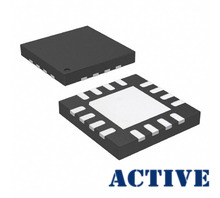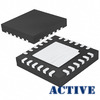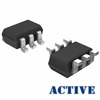
LTC3522EUD#TRPBF
- Artikelnummer:
- LTC3522EUD#TRPBF
- Hersteller:
- ADI (Analog Devices, Inc.)
- Beschreibung:
- IC REG BCK BST ADJ DL SYNC 16QFN
- Bleifreier Status / RoHS Status:
- Bleifrei / RoHS-konform
- verfügbare Anzahl:
- 79347 Pieces
- Lieferzeit:
- 1-2 days
- Datenblatt:
- LTC3522EUD#TRPBF.pdf
Einführung
We can supply LTC3522EUD#TRPBF, use the request quote form to request LTC3522EUD#TRPBF pirce and lead time.XXX.com a professional electronic components distributor. With 3+ Million line items of available electronic components can ship in short lead-time, over 250 thousand part numbers of electronic components in stock for immediately delivery, which may include part number LTC3522EUD#TRPBF.The price and lead time for LTC3522EUD#TRPBF depending on the quantity required, availability and warehouse location.Contact us today and our sales representative will provide you price and delivery on Part# LTC3522EUD#TRPBF.We look forward to working with you to establish long-term relations of cooperation
Spezifikation
| Bedingung | New & Unused, Original Packing |
|---|---|
| Ursprung | Contact us |
| Spannung - Ausgang (Min / Fixed): | 0.6V |
| Spannung - Ausgabe (max): | 5.5V |
| Spannung - Eingang (min): | 2.4V |
| Spannung - Eingang (Max): | 5.5V |
| Topologie: | Buck, Buck-Boost |
| Synchrongleichrichter: | Yes |
| Supplier Device-Gehäuse: | 16-QFN-EP (3x3) |
| Serie: | - |
| Verpackung: | Tape & Reel (TR) |
| Verpackung / Gehäuse: | 16-WFQFN Exposed Pad |
| Ausgabetyp: | Adjustable |
| Ausgangskonfiguration: | Positive |
| Betriebstemperatur: | -40°C ~ 85°C (TA) |
| Anzahl der Ausgänge: | 2 |
| Befestigungsart: | Surface Mount |
| Feuchtigkeitsempfindlichkeitsniveau (MSL): | 1 (Unlimited) |
| Hersteller Standard Vorlaufzeit: | 12 Weeks |
| Bleifreier Status / RoHS-Status: | Lead free / RoHS Compliant |
| Funktion: | Step-Down, Step-Up/Step-Down |
| Frequenz - Umschaltung: | 1.07MHz |
| detaillierte Beschreibung: | Buck, Buck-Boost Switching Regulator IC Positive Adjustable 0.6V 2 Output 200mA, 400mA 16-WFQFN Exposed Pad |
| Strom - Ausgabe: | 200mA, 400mA |
| Basisteilenummer: | LTC3522 |
| Email: | [email protected] |
läst Nachrichten
- Mouser liefert Glasfaseranschlüsse für Mil-Aero-Anwendungen
- Jacarem unterzeichnet Franchise für EDAC-Steckverbinder
- Ein Blick vom RISC-V-Gipfel
- Low-Profile-Steckverbinder sind robust genug für die Industrie
- Benötigen Sie eine beleuchtete Tischlupe?
- Die 100Mips DSP-MCU für die Motorsteuerung ist die kleinste von Microchip
- Nicht-ITO-transparente Leiter konkurrieren um den Markt für faltbare Displays
- Electronica: Wasserdichte professionelle Steckverbinder für den Außenbereich
- Seitenerkennungsschalter sind verdammt klein
- Electronica: Video Interview - Datenmodul auf dem PCAP-Touchscreen easyTOUCH
- Electronica: Bluetooth 5 Energy Harvesting-Schalter
- Ordentliche Verpackung für RS232-IO-Link-Konverter für industrielle Netzwerke




